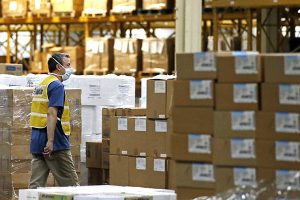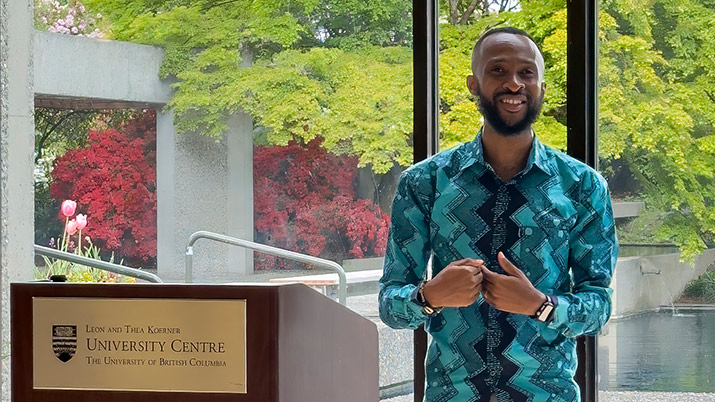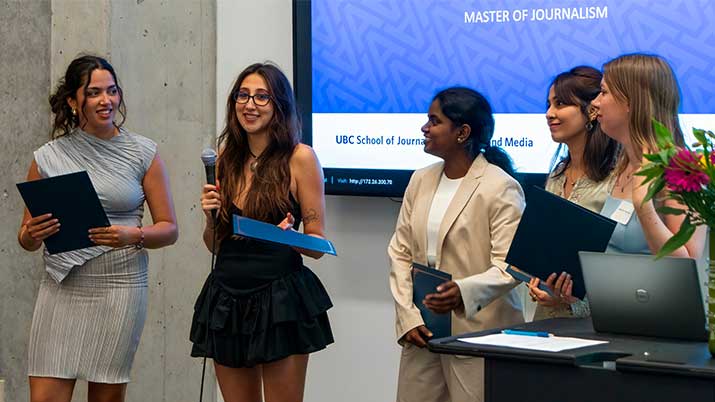Students, alumni, faculty and staff at the School of Journalism, Writing, and Media were part of the team behind a new PBS investigative documentary on the coronavirus crisis in the U.S. and its deadly consequences.


The documentary reveals how the downturn of American manufacturing and the weakness of the supply chain between the U.S. and Asia left the country scrambling for PPE and other critical medical supplies. It shows how these problems persist even now.
It was produced by the Global Reporting Centre, housed at the UBC School of Journalism, Writing, and Media (JWAM), in partnership with FRONTLINE and The Associated Press, and premieres on Oct. 6 on PBS FRONTLINE.
The project “grew directly out of the academic question, which was, you know, why is the medical supply chain so fragile?” said JWAM professor and executive director of the Global Reporting Centre, Peter Klein.
“If you ask an academic, they’ll say, there’s a lot more to it,” said Klein, an Emmy-award winning journalist.
“The role of just in time delivery, there’s the role of purchasing organizations, there’s the whole role of offshoring, and a number of elements that seem kind of maybe not the most exciting topics, but they’re part of it.”
Research, writing and fact-checking
Journalism students and alumni contributed to the fact-checking and writing of the investigation.
“I’ve been looking into medical supply chains, that is, syringes, the role state governments and governors play in the pandemic response,” said Stephane Lavoie, second year student in the journalism master’s program and research assistant for the Global Reporting Centre.
First year Master of Journalism student Katarina Sabados helped the team with fact-checking.
“I looked at the script and went line by line sourcing and corroborating each claim made in the story sections I was assigned,” she said.
Student Logan Turner and alumni Britney Dennison, Sharon Nadeem and Calyn Shaw also helped to develop aspects of the documentary.
“We had to film most things remotely, which was very difficult”
Scholars and students from other departments at UBC contributed their scholarly expertise, including Dr. Jane Lister and Dr. Peter Dauvergne, the Liu Institute for Global Issues and Department of Political Science.
One aspect of the project that benefitted from academic knowledge was a detailed timeline, going back to the 1970s, on how medical supply chains have changed over the years.
“We pulled together detailed databases of, you know, the use of defense production act, and, you know, the timelines for when different PPE manufacturers moved abroad, and which ones moved abroad and whether they moved to etc,” Klein said.
Investigative journalism in a pandemic
Over months of interviewing manufacturers and government officials, analyzing records and tracing key medical supplies, they found opportunities stretching across two presidential administrations where failure might have been prevented.
The production team had to come up with innovative ways to overcome the challenges of working on an investigation into a topic like COVID-19 during the pandemic.
“It was very, very hard. I mean, I’ve never done a documentary where I haven’t left my house. We had to film most things remotely, which was very difficult,” said Klein.
“It’s also difficult, just, you know, being in it. You’re dealing with these issues on a daily basis, on a personal level, while you’re also reporting on it. So that makes it difficult.”
The project was made possible with funding from the Social Sciences and Humanities Research Council (SSHRC) and Humanity United.


